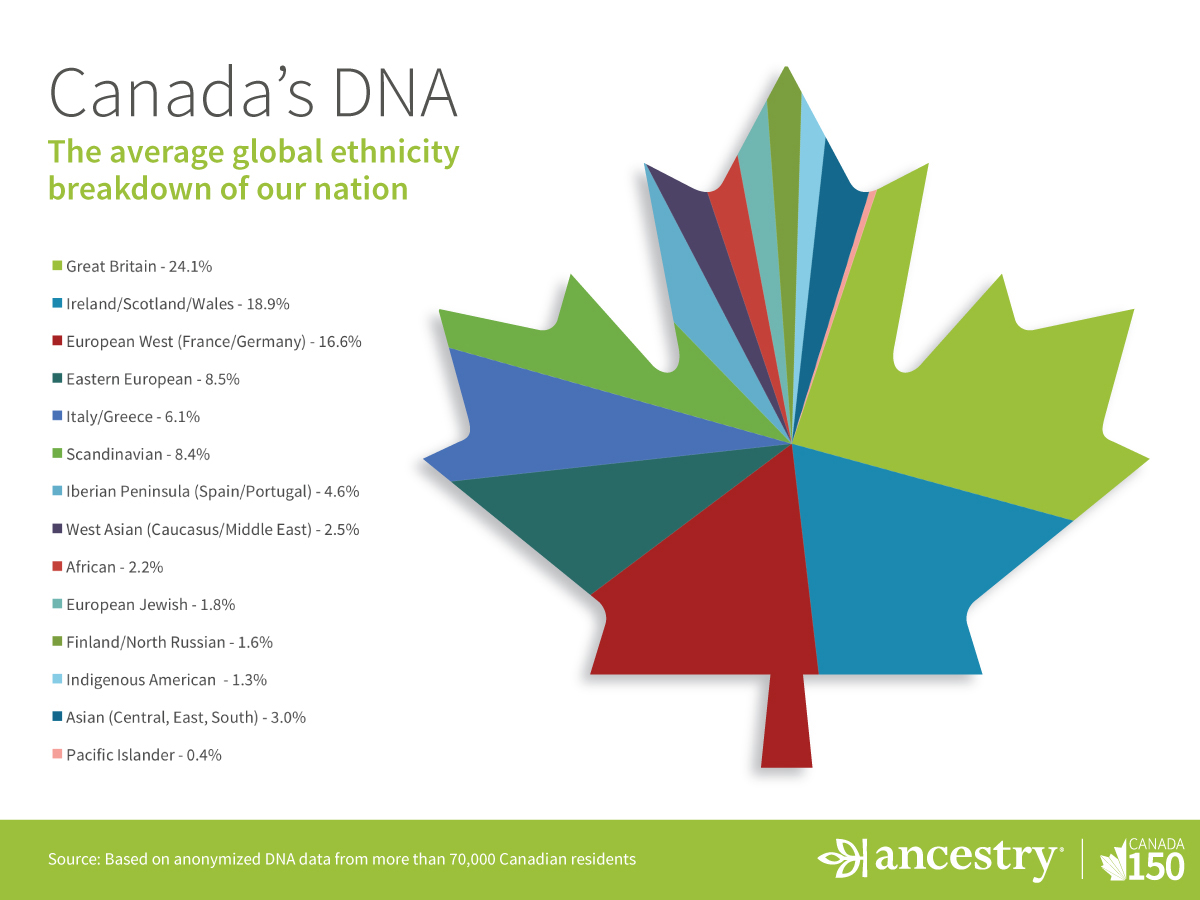Canadians take great pride in celebrating the country’s diversity. But do we really know where we come from?

Ancestry, the family history website that’s known for completely blindsiding people with revelations that they come from ethnicities they never imagined figured into their genetic makeup, conducted a study analyzing the DNA of 70,000 Canadians. The results reveal that the average Canadian isn’t average at all.
WATCH BELOW: Canada 150: Major city skylines then and now

“We are one of the most diverse countries in the world, so it’s no surprise that the results are a mix of influences,” says Lesley Anderson, Ancestry.ca’s family history expert. “But it was surprising to see that the average Canadian has more continental European DNA than British, Irish or Scottish.”
The study revealed that the nation is made up of 46 per cent continental European DNA (including from countries like Germany and France), while British, Irish and Scottish influence only account for 43 per cent, which is surprising considering our country’s Anglo-Saxon roots.
- Canadian man dies during Texas Ironman event. His widow wants answers as to why
- Several baby products have been recalled by Health Canada. Here’s the list
- ‘Sciatica was gone’: hospital performs robot-assisted spinal surgery in Canadian first
- Dating apps ‘worse than ever’ for your privacy, report warns
The percentages are also further broken down into countries and regions: European DNA is 16.6 per cent Western European, and 8.5 per cent respectively Scandinavian and Eastern European. British DNA counts for 24 per cent, while Irish, Scottish and Welsh is 19 per cent.
There were bigger surprises in some of the individual provinces, too.
“While we did see large averages of European DNA, there was also quite a bit of diversity from West Asia, Africa, and Jewish influences,” says Julie Granka, Ancestry’s manager of personalized genomics.
The largest African DNA was found in Nova Scotia, where it accounted for 1.5 per cent, followed by Ontario (1.1 per cent) and New Brunswick (1 per cent).
Being a country comprised largely of immigrants, it’s not surprising that immigration patterns help to pull back the veil on some dominant cultures in certain provinces, she says.
For example, Anderson points to Quebec’s strong Jewish DNA and British Columbia’s Asian and Eurasian influence as making sense both from a historic and geographic perspective. It also comes as little surprise that Yukon, Nunavut and the Northwest Territories have the highest percentage of Indigenous DNA.
READ MORE: 10 of Canada’s most unique hotels in natural settings
But none of that helps to explain one of the study’s most surprising reveals: the second highest percentage of European Jewish DNA was found in Yukon, yet only 175 residents claimed Jewish ancestry on their 2011 census.
“These statistics speak to the huge diversity in Canada, and the different paths and histories of Canadians,” Granka says. “It’s a powerful thing to see this diversity but it’s also wonderful to note that we’re all united as one country.”
Interactive: Build your very own coat of arms
Click “Get Started” to create a customized, shareable coat of arms.






Comments